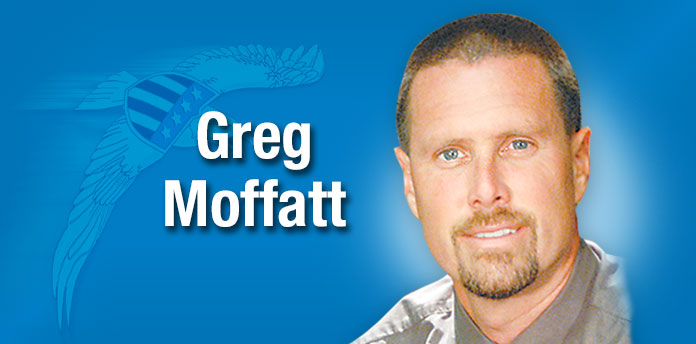I looked out the breakfast room window and there was my son. That beautiful 8-year-old boy was just beyond the window working feverishly with a recent birthday present — a child-size garden hoe. He was “weeding” an area beside the house, only what he was so diligently chopping was the base of a recently planted rose bush.
I banged on the window and shouted at him to stop. I wasn’t angry and I was only yelling so he would hear me through the closed window. Immediately he stopped and then I saw I had made a mistake. I didn’t think about how he would receive my words.
The determined face he wore as he was trying so hard to do something helpful transitioned into grief and remorse. Before I could hustle out the back door, his eyes were full of tears. I pulled him close to me and did my best to comfort him. But the damage was done. He thought I was mad and he was ashamed. He was working so hard and he was only trying to help.
What is noteworthy about that interaction so many years ago is that I’ve heard my son tell that story many times over the 20 years or so since it happened. He clearly remembers his intent to do well and how my reaction made him feel. What I’ve never once heard him include is how I tried to comfort him.
There is no fault in that. He probably doesn’t even remember my loving arms around him thanking him for working so hard. And this was an event where I wasn’t even angry. Imagine how lasting a painful experience would be if I had been? This story clearly teaches us the power of a hurtful tone and hurtful words, even when unintentional.
Someone once said it took seven positive acts to overcome one painful act. Whether or not 7:1 is the correct ratio, the effect is that my loving arms that day weren’t enough to override the negative part of my son’s experience.
When I was a child, my mother taught my sisters and me the adage, “Sticks and stone can break my bones, but words will never harm me.” It was a good strategy for us to learn in order to cope with the normal childhood teasing we all experience at one time or another. But that adage is a lie.
Words — along with the tone, intent, body language, and volume that accompany them — can hurt us deeply.
A classmate bullied me throughout grade school. One day he cornered me and instead of trying to outrun him, I swung at him with my metal lunchbox. It connected with his chin and it was one of the last times he ever tried to pick a fight with me. I suspect the hints of a scar may still be there on his chin.
In the same way, I suspect I’ve left lots of scars that you can’t see. Sharp-tongued words carelessly spoken to my parents, my children, spouse, or my friends. “I’m sorry,” is a good start, but like my loving arms around my son, they are not enough to cover the hurt I caused.
I carry my own scars, of course. We all do. Our best remedy is to never swing the metaphorical lunchbox to begin with.
Hurtful and thoughtless words can’t be erased like words on a white board. But even then, interestingly, there are times when I’m erasing dry marker from the white boards in my classroom that I notice the words can still be seen. I’m not sure why that happens sometimes, but there are boards throughout our classroom building that have residual words still visible, though written long ago. Sometimes the words just won’t go away.
I envision my words like Lego blocks building one’s esteem. I’m either building up esteem with what I say and do or I’m tearing it down – sometimes one block at a time and sometimes huge sections at once. It can go either way, but like the 7:1 rule, it is hard to build large sections, but it’s very easy to tear large sections down.
Quite a few years ago, when I started to realize the truths I’ve shared here, I committed myself to consciously asking myself one question before speaking — especially if I was angry. “Will these words be ‘building up’ words or ‘tearing down’ words?”
I don’t know if anyone noticed a change in me, but I noticed. And more importantly, asking myself this question saved a lot of people painful memories, because harsh or thoughtless words that I once might have said were never spoken.
[Gregory K. Moffatt, Ph.D., is a college professor, published author, licensed counselor, certified professional counselor supervisor, newspaper columnist and public speaker. His website is gregmoffatt.com.]












Leave a Comment
You must be logged in to post a comment.